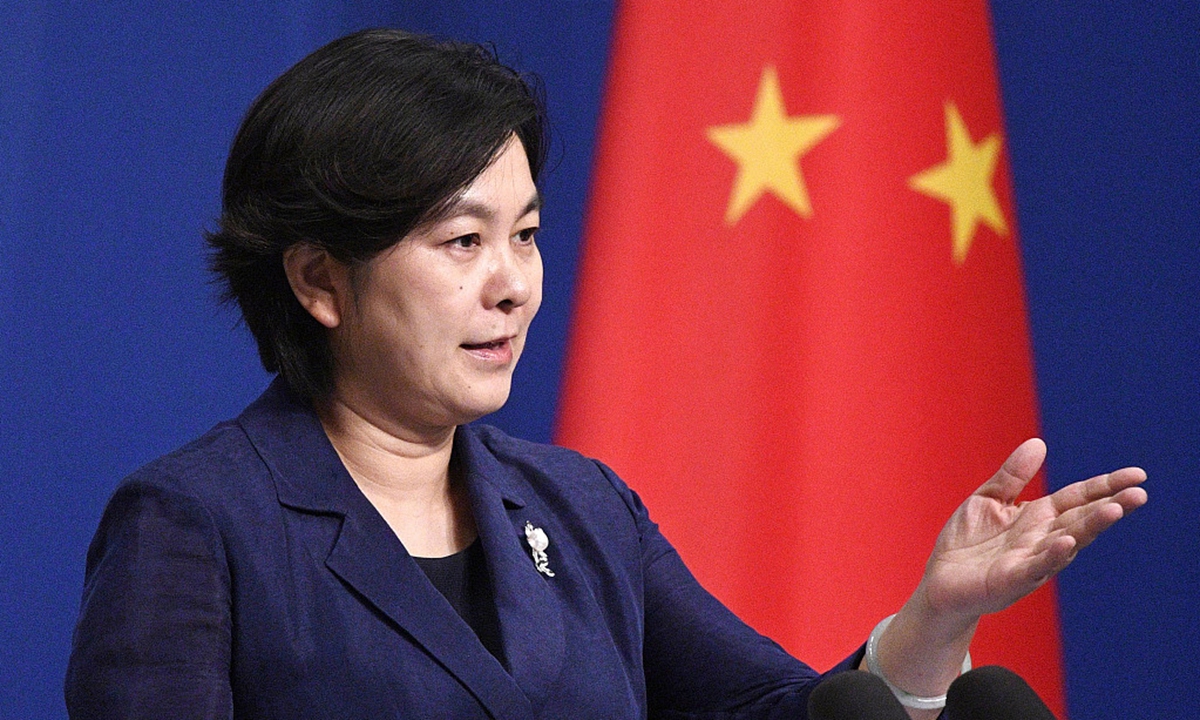
Chinese Foreign Ministry spokesperson Hua Chunying. Photo: VCG
China on Wednesday urged Japan to discipline its diplomatic personnel, respect Chinese law and restrain its diplomats from engaging in activities inconsistent with their capacity after media reported a Japanese diplomat in China was briefly held for questioning on Monday.
The spokesperson of the Chinese Embassy in Japan said that a Japanese diplomat from the Japanese Embassy in China engaged in activities inconsistent with the capacity of a diplomat in China and was questioned by Chinese competent departments in accordance with laws and regulations.
During the process, the legal rights of the diplomat have been protected, the spokesperson said, noting that China does not accept the representations brought up by Japan. The embassy spokesperson urged Japan to respect Chinese law and strictly restrain its diplomats' behaviors and speeches and prevent them from engaging in activities inconsistent with the capacity of a diplomat.
Media reported previously that the Japanese diplomat was briefly held for questioning on February 21, and the Ministry of Foreign Affairs of Japan lodged representations to the Chinese Embassy in Japan.
In response to a question concerning the incident at Wednesday's press conference, Hua Chunying, China's Foreign Ministry spokesperson, made similar explanations and said China has lodged solemn representations to Japan over the case, urging it to prevent similar incidents from happening.
The Vienna Convention on Diplomatic Relations clearly stipulates that diplomats have clear provisions on the boundaries of the conduct of diplomats. Foreign diplomats have the obligation to comply with host country laws and regulations, Hua said.
Li Baiyang, an intelligence expert from Wuhan University, told the Global Times on Wednesday that although the 29th article of the Vienna Convention on Diplomatic Relations does stipulate "diplomats must not be liable to any form of arrest or detention," it is not absolute.
Protocols released by China's Foreign Ministry said that when diplomats severely damage the social order or security, and the damage they caused could expand if not contained, such as political conspiracy, espionage activities, doing violence, assault and drunk driving, the host country can take necessary measures at the scene including on-site monitoring, and temporary detention.
Da Zhigang, director of the Institute of Northeast Asian Studies at Heilongjiang Provincial Academy of Social Sciences, told the Global Times that the Vienna Convention is to protect diplomats, not a convention to condone or encourage activities inconsistent with the capacity of a diplomat. The Convention should not be an amulet to activities which harm interests of the host country.




